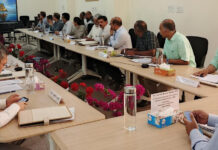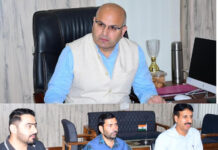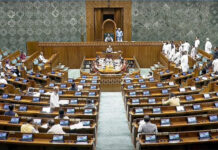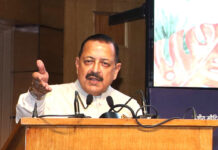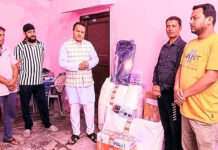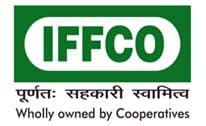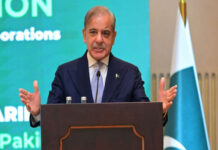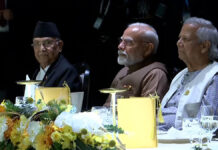The fund allocated to all MPs for local area development is hardly utilised for above-board projects that would really benefit the locals
Members of Parliament Local Area Development Scheme, or MPLADS, which allots Rs 5 crore annually to every MP, was suspended for 2020-21 and 2021-22, and for good reason. But several MPs feel the scheme should be revived. There are 543 Lok Sabha and 250 Rajya Sabha MPs, a total of 793. Each was last entitled to Rs 5 crore for this purpose. If fully utilised by every member, the Government of India would spend Rs 19,825 crore over five years (the Rajya Sabha’s term is six years but let us ignore the sixth year for the time being). Over five years, the Government’s outlay would total up to Rs 99,125 crore or nearly Rs 1 lakh crore on account of MPLADS.
Individual MPs are not accountable to anyone regarding what they have done with their Rs 25 crore during their terms. There is no audit at all. At its most practical, it is money for jam. At its inaction, it remains unspent. It was introduced by Prime Minister Narasimha Rao, in my view, to keep the MPs happy as his Congress Government was some 50 MPs short of a majority. The figure then was Rs 2 crore annually; Manmohan Singh increased the figure to Rs 5 crore, again to keep the MPs happier. In both cases, this scheme was a baksheesh to every MP in exchange of support, present or future, to the Government — as cynical as that.
Rather than comment, let me give my own experience of the Rs 4 crore allocable to me for my two-year membership. My party allocated to me Vadodara, the city as well as the district. We are talking of the period towards the end of 2000. The party held a meeting of local workers, of whom some 30 persons turned up. They warmly applauded my coming and garlanded me. I had never before been so honoured. In my brief speech, I thanked them but asked jocularly whether their warmth was out of regard for me or in expectation of our spending Rs 4 crore. The audience laughed, which eloquently meant the latter. I said we would meet again to decide what development works we should do and where.
The next day I went to see the District Collector, who was warm and friendly. My request to him was to help me implement this scheme as I had no machinery. I went on to say that I did not wish to mix it up with my business. His advice was that I should set up an NGO and get the scheme implemented through it.
Another wise man I consulted advised me to get my party MLAs together and a few active workers, and then verbally distribute the total fund amongst them. That meant that if an MLA was to get Rs 20 lakh, up to this figure, whatever work he recommended in his constituency, I would sign on. He would do the rest and I would ask no questions, except go to inaugurate his work if he invited me. The wise man went on to say: “Then you see how these people work for you at election time in case you contest for the Lok Sabha next time.”
Meanwhile, someone non-political suggested that I should build as many Sulabh Shauchalayas as possible on Vadodara’s streets. The common people, especially the women, would bless you. This suggestion not only gave me confidence but also a reliable, known and professional implementer.
It took two odd years to get all the piece of land too for 10 bus stops in the city. In the rural sector, 88 brick and mortar bus stops were built, fortunately obliged by the same agency. Medical equipment for Ahmedabad’s public hospital Sheth Vadilal Sarabhai, a computer system in a school in Vadodara city and several anganwadis in a few villages were also set up. Imagine the amount of work that could be done with a mere Rs 4 crore!
In many cases, the MP finds it difficult to implement projects. In my time, no particular item could entail more than Rs 10 lakh. This meant that I had to spend my total grant on at least 40 small projects. Therefore, some MPs have a go at a few projects and leave the remaining funds unspent. Some distribute the money among local MLAs and others. Others use their own NGOs. The whole scheme is so clumsy that it is wasteful. It was comprehensively useful if the purpose was only to distribute perquisites to the MPs.
In spite of these shortcomings, if there be a parliamentary consensus for resuming the grants to MPs, be it so. But a change in procedure is necessary; let a keen MP apply to the Finance Minister giving what s/he proposes to do and how, within how much time. If an earmarked joint secretary finds the proposal viable and useful for the particular area, an approval could be given but subject to audit by a licensed auditor empanelled for MPLADS. The result would be beneficial to the area’s people, executed economically and with a degree of uprightness.
(The writer is a well-known columnist and an author. The views expressed are personal.)

